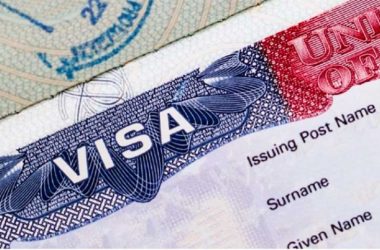
Friday May 3rd was World Press Freedom Day and UNESCO awarded its 2024 Press Freedom Prize to the journalists covering Israel’s war on Gaza, 143 of whom have been killed in the first 200 days since October 7.
Journalists and their families are being targeted by drones and shot or blasted to death by Israeli soldiers, whether covering the war, in their homes or driving from one story to another.
And while journalists are being killed in Gaza, the world’s most popular and longest-held journalist of international repute behind bars remains Julian Assange, languishing in a London jail awaiting possible deportation to the USA where he can be sentenced to at least 170 years in jail for the work done by him and Wikileaks to expose dirty military secrets the US government would have preferred to have kept secret.
The US also jailed Chelsea Manning for providing the information to Assange; and while Assange’s family is appealing for support for a call for him not to be deported to the US where he can die in jail – if not sentenced to death – Al Jazeera, an international news channel bringing the world all about the war on Gaza, has not been given permission by the Government of India, to cover the world’s largest election involving one billion voters casting ballots over two weeks.
And while Caribbean journalists have all but abandoned coverage of Haiti, Al Jazeera, CNN, BBC, Sky News, Associated Press, Reuters, Miami Herald, New York Times are filling the gap and furnishing the Caribbean and the world with misinformation that only suits the plans of those planning to unleash troops on the ground in Haiti by any and all means, as soon as possible.
Across the Caribbean, meanwhile, reporters continue to report just what they see, hear and read from the mainstream international media houses, whose narrative is always anti-Haiti.
Same with the Guyana-Venezuela quarrel over the Essequibo region that has assumed worrisome proportions. Few Caribbean reporters have gone out to research this story that goes back to 1899 – again only relying on the usual suspects – the mainstream international media – to tell us in the Caribbean what’s happening in the Caribbean, between two neighbouring Caribbean nations, that share membership in the Community of Latin American and Caribbean States (CELAC).
These two Caribbean oil giants share borders, both with excellent ties with CARICOM and CELAC, but about which we are only discovering young reporters – and old journalists too – know precious-little.
We continue to latch-on to loose phrases like ‘Press Freedom’ and ‘Freedom of Information’ and ‘Access to Information; and we keep referring freely and often to the ‘First Amendment’ of the US Constitution, without realizing it only applies to America.
And even in America, the press is not-at-all free: For example, see how Edward Snowden and Julian Assange had to hightail out the USA and UK and seek asylum, Snowden in Russia and Assange at the Ecuador Embassy in London, where he spent between seven and nine years.
We continue to mix journalism with partisan politics, but even against those dark clouds there are silver linings at every media house where young reporters see a future in journalism and are pursuing their career, nevermind the pressures and difficulties.
Those willing to go the long haul can be read, seen and heard with stories and reports that inform, vis-à-vis reports that simply recycle misinformation because they don’t now or don’t want to know better.
The main problems affecting press progress remain the same: employers still see training as an expense instead of an investment; and many enter the profession more for a salary than a hard-working job, not showing the zeal and enthusiasm that goes with the art of finding ad telling true stories that no one saw, heard or knew before, or bringing fresh angles that others ignored.
Another outstanding need is for a national media or journalists association that’s truly interested in organizing members into an effective entity that represents their right all-the-time, like the Saint Lucia Media Workers Association (SLMWA) did here in the 1980s and 1990s and the Caribbean Association of Media Workers (CMWORK) did at the regional and international levels, to improve Caribbean journalism and better the conditions under which we work – as well as to encourage media workers at all levels to give a fair day’s work for the expected fair day’s pay.
So, yes, we observed World Press Freedom Day on Friday, but, sad to say, the press is free nowhere because everywhere those opposed to genuine press freedom have always found ways and means to make those freedoms exist only on paper, or on our minds, while they continue to freely dominate the narrative through their control of the press.
The press will never be truly free until The Press owns the press…
But here again, when journalists down their pens and cast keyboards aside to open their own private media house, they hardly realize they are converting and transforming themselves from being journalists to try their hands at the business of running a media house, more concerned now about earning income and paying salaries every month-end.
In the process, new media houses are created – just look at the number in existence today since the advent of the internet and online broadcasting through multitudes of new platforms.
Unfortunately, the big race today is more to access the latest gadgets and systems, than to ensure what is reported also gets to those who have no access to or don’t yet use the internet.
Offline citizens are left-out of the flow these days, just as pensioners are treated like they’ve lost their brains and are rendered useless to the society.
But all that can and will change; we simply can’t say if sooner or later, but just as day follows night and vice versa, change will come, so let’s press on!













